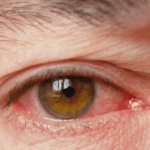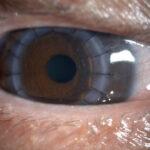Nutrition play an important role in slowing the progression and preventing the onset of ocular diseases such as Age-related Macular Degeneration (AMD), glaucoma, cataract and so on. Studies show getting sufficient essential nutrients can preserve good vision and eye health. Antioxidant-rich foods and supplements such as anthocyanins, carotenoids, flavonoids, and vitamins have been shown to lower the risk of getting eye-related diseases such as Age-related Macular Degeneration (ARMD).
Vitamin A
- A study showed the reduction of glaucoma risk among a population of black women with intake of fruits and leafy green vegetables high in vitamin A. The sources of vitamin A include dark green produce such as kale, mustard, collard, and broccoli, orange produce such as carrots, sweet potatoes, papaya, egg yolks and whole milk.
Vitamin C
- Vitamin C functions as an antioxidant and it can lower the risk of developing early cataract and helps to slow down the progression of age-related macular degeneration (AMD) and vision loss. The sources of vitamin C are citrus fruits, red and orange produce such as tomatoes, cantaloupes, peppers, green produce such as broccoli, cabbage. Other than that, cauliflower and berries are also rich in vitamin C.
Vitamin E
- Vitamin E works well together with vitamin C to protect against the unstable molecules (free radicals) that damage the healthy tissue on your eyes. The sources of vitamin E can be found in egg yolks, avocados, butter shrimp and dark green leafy vegetables.
Lutein and Zeaxanthin
- Many studies show that lutein and zeaxanthin lower the risk of age-related macular degeneration (AMD) and cataract. The sources of lutein and zeaxanthin can be found in dark green leafy vegetables and fruits such as broccoli, peas and corn.
Zinc
- The human eye contains high levels of zinc which plays an important role in eye health. Zinc helps to transport vitamin A from liver to the retina to produce melanin where melanin acts as a protective pigment in the eye. The sources can be seafood, nuts, seeds, cheese, yoghurt, soybeans and so on.
Essential fatty acids
- Essential fatty acids aid visual development and retinal function. It functions by fuelling cells and optimising central nervous system function. Omega-3 fatty acids, particularly eicosapentaenoic acid (EPA) and docosahexaenoic (DHA), are vital in vision development and maintaining proper eye and retinal function. Sources of omega-3 fatty acids include cold water fish such as salmon and sardines.

A sufficient amount of nutrients & vitamins play an important role for a healthy eye. However, excessive intake of vitamins or supplements may sometimes reverse the effect causing unnecessary problems as well. For example, high doses of beta carotene (Vitamin A) intake can lead to lung cancer. Therefore, it is encouraged for people who are having vision problems and with poor control of diet to seek advice from eye professionals for the right food to maintain their eye health. An eye health professional can help you create a diet plan which is suitable for you and helps to reduce the chances of developing age-related eye diseases.






